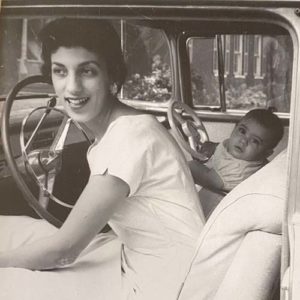Melony Newman wasn’t ready to die.
For years, she had struggled with worsening heart failure, and she was constantly tired and short of breath. She felt worn out by years of treatments and medications that hadn’t worked. Now, she was facing a critical decision: whether to undergo surgery for a heart transplant — her last option — or succumb to her failing heart.
For women in the U.S., heart disease is still the leading cause of death, causing about 1 in every 5 deaths. However, because heart research has historically focused on men’s anatomy, many women don’t receive care that’s designed for the unique ways heart disease affects them.
That’s why the UW Medicine Division of Cardiology is creating the Women’s Heart Health Initiative. Their goal is to move heart health forward by fast-tracking research, customizing care for women’s bodies and needs, and training the next generation of specialists to understand the effects of heart disease on women — like Newman.
Newman had faced many challenges, but she wasn’t done fighting. And, with help from her UW Medicine care team, she was determined to survive.
A family history of heart disease
Newman was born with a heart murmur, but for decades, it didn’t seriously affect her health. An avid runner and hiker, she always enjoyed a healthy diet and active lifestyle — in part because she hoped to prevent the heart disease that ran so strongly in her family.

Melony Newman and her mother.
Newman’s mother, Marie, also had a heart murmur, and she experienced her first heart attack at the age of 56. For years, Newman cared for her mother through a second heart attack, a bypass and a mitral valve replacement. Finally, her doctors recommended a heart transplant, but Newman’s mother was exhausted and didn’t want to go through open-heart surgery again. Newman was just 31 when her mother passed away at age 61.
“At that time, testing and monitoring women’s heart health wasn’t routine,” says Newman. “My mother would attribute it to her generation’s lifestyle: diet, smoking and not taking care of herself. So I became almost a fanatic with healthy diet and exercise after watching what she went through. I thought and prayed that those healthy choices would prevent what happened to my mother.”
Years later, Newman’s older sister, Lory, was diagnosed with ventricular tachycardia — a serious arrhythmia that can cause sudden death or impair blood flow to the rest of the body, depending on the heart rate. Ultimately, her doctors also recommended a heart transplant in 2012, which was successful.
In 2010, Newman went to the emergency room with heart palpitations of her own. Her heart rate was over 200 beats per minute. After a week in the hospital, she received an implantable cardioverter-defibrillator (ICD), a device that detects fast heartbeats or arrhythmias and treats the condition by shocking the heart back to a normal rhythm. Like her sister, she was diagnosed with ventricular tachycardia. A few months later, she was also diagnosed with cardiomyopathy and congestive heart failure while in the hospital for heart ablation, a procedure that scars heart tissue to reduce unwanted electrical signals.
For years, Newman’s health challenges continued to worsen. She developed a progressive leak of the mitral valve, requiring surgery. At that time, her doctors suggested genetic testing.
Newman learned she had a mutation in the Lamin A/C gene (LMNA) that was responsible for her and her sister’s heart disease — and, most likely, her mother’s, too.
After the valve surgery, Newman’s health worsened rapidly. Simply walking across a room would leave her exhausted. “I would think about how much I could do, planning out my small bucket of energy,” she says.
In March 2019, Newman’s heart failure cardiologist told her she needed a heart transplant. Even after years of struggling with heart failure, it came as a shock. Newman’s last open-heart surgery had been so physically draining that, like her mother, she had sworn she wouldn’t go through it again. Reluctantly, she agreed to start the pre-testing process and join the wait list for a transplant if she was accepted.
Although Newman and her husband Jeffrey live in Oregon, there were no transplant centers in the state at the time, and they decided to travel to UW Medicine for her heart transplant. There, she met Elina Minami, MD, Fel. ’03, clinical associate professor in the Division of Cardiology.
“I knew I was in really good hands,” says Newman. “Dr. Minami has such a calm manner and an amazing and logical approach to care. She made me feel so comfortable and that I was at the right place. She is, quite simply, the most incredible healthcare professional I had ever encountered, and her focus and confidence were an inspiration to me.”

